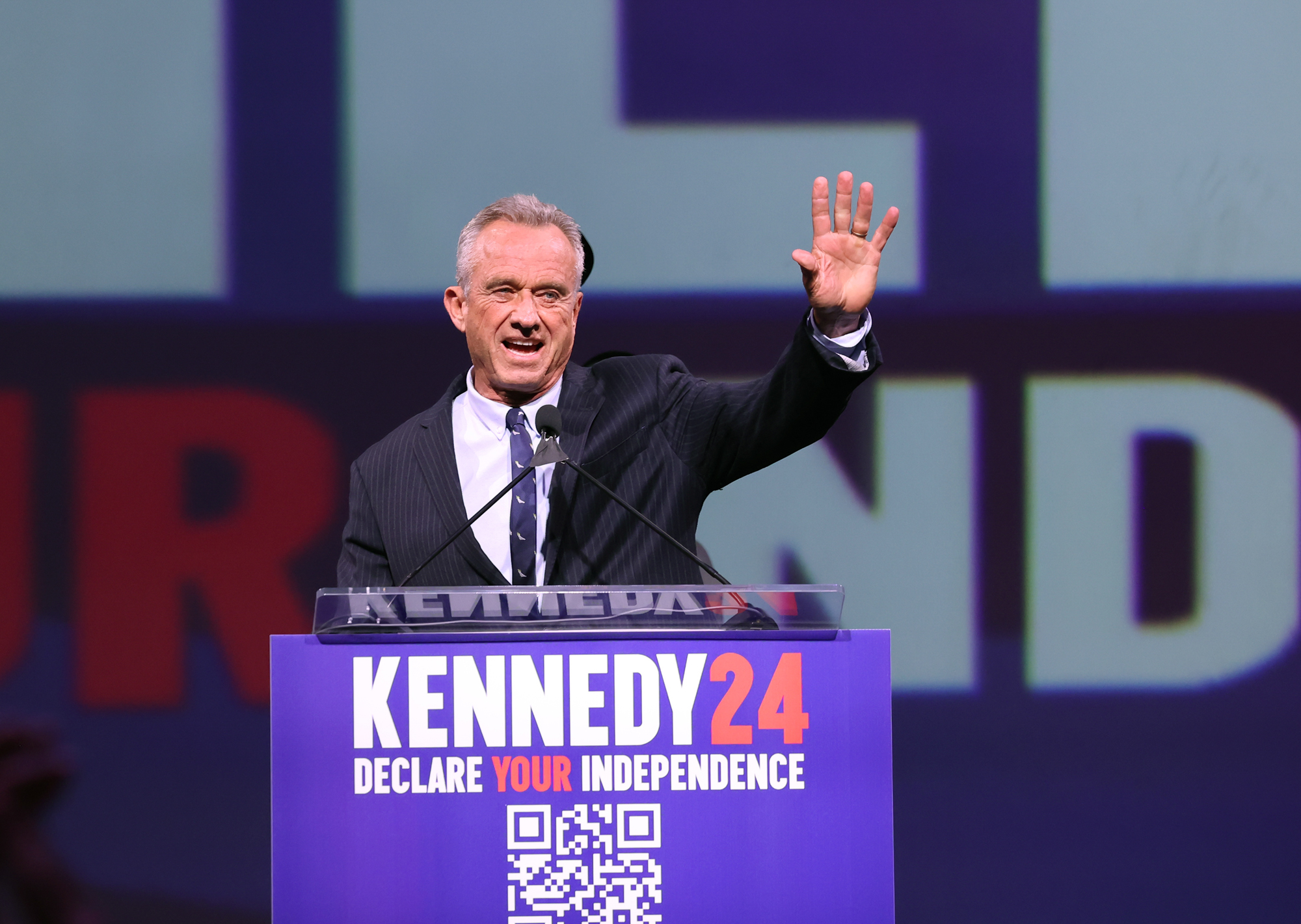Robert F. Kennedy Jr.’s independent presidential campaign has gathered enough valid signatures to qualify for the Nevada ballot, the secretary of state’s office announced Friday.
County election officials verified about 22,200 valid signatures in support of the campaign, well more than the roughly 10,000 needed to qualify for the ballot. The campaign submitted about 30,000 signatures earlier this month.
Now, the campaign must submit official and alternate slates of electors and a declaration of candidacy with state election officials, which are both underway, said Randell Hynes, the campaign’s Nevada coordinator. The only other obstacle is a still-pending lawsuit by the Nevada Democratic Party seeking to block Kennedy’s ballot access as an independent.
“We’re feeling pretty good about it,” Hynes said in a Friday interview. “Once we get that [lawsuit] behind us, we’ll be good.”
The petition’s approval marks a key step for Kennedy’s campaign, which has for months feuded with state election officials over its efforts to land on the Nevada ballot. Its first petition was considered likely invalid because it did not list a running mate. This decision prompted a lawsuit from his campaign, though that is now likely rendered moot because his now-approved petition included his running mate.
The campaign also retracted its second petition after misspelling “United States” twice, an error that likely would not have invalidated the petition. The third petition was the one approved Friday.
Kennedy’s entrance into the Nevada race threatens to play spoiler in the contest between Vice President Kamala Harris and former President Donald Trump. There has been limited polling since Harris became the presumptive Democratic nominee earlier this week, but national polling appears to show Kennedy’s support slightly falling following President Joe Biden’s departure from the ticket. In Nevada, polls showed Kennedy hovering around 6 percent of the vote in Nevada while Biden was still in the race.
The lawsuit brought by the Nevada Democratic Party argued that Kennedy should be blocked from the ballot because he is running as a member of minor political parties in other states. Nevada law stipulates that independent candidates for any partisan office must not be registered with a political party or proposing to run with a political party. A hearing has not been scheduled in the case in Carson City District Court.
Kennedy, an environmental lawyer and nephew of John F. Kennedy, initially began his run for president last year as a Democrat before deciding to seek the office as an independent.
In public, Kennedy has given no indication that he would leave the race after Biden’s departure. In private, The Washington Post reported that he had offered to endorse Trump in exchange for a public health position in his administration, but Trump’s team reportedly denied that offer.
Health policy is a popular talking point for Kennedy, who rose to prominence during the COVID-19 pandemic for floating anti-vaccine conspiracy theories. During a campaign event in Nevada earlier this year, Kennedy pledged that as president, he would tell the National Institutes of Health to take a “break” on drug production and efforts to curtail infectious diseases and accused the “medical cartel” of intentionally making kids sick by shipping drugs to communities across the U.S.
During a speech in Las Vegas earlier this month at FreedomFest, an event billed as the “world’s largest gathering of free minds,” Kennedy said Trump and Biden’s response to the pandemic led to an erosion of free speech. His speech largely focused on being an “anti-establishment” alternative to Trump and Biden, an argument that polls show may be less convincing now that Biden is not in the race.
His campaign otherwise includes other mainstream Democratic positions, including a federal $15 minimum wage, transitioning to cleaner energy sources and police reform.

